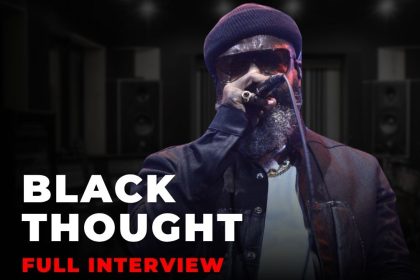Hip-hop‘s journey from underground movement to global cultural force spans five decades of evolution, during which lyrical content has both reflected and influenced societal changes. Industry experts and cultural critics have long discussed how the genre’s expression has transformed alongside shifting social values and expectations. This evolution reflects broader changes in society, from civil rights movements to economic transformations and technological advances.
Historical context matters
The evolution of hip-hop lyrics cannot be separated from the historical and social contexts in which they were created. Music historians note that early hip-hop emerged as a voice for marginalized communities, with lyrics focused on social justice, economic inequality, and personal struggles. This foundation would influence how the genre developed over subsequent decades. Early pioneers like Grandmaster Flash and the Furious Five addressed social issues directly in songs like “The Message,” setting a precedent for using hip-hop as a platform for social commentary.
Industry influences on content
Commercial pressures and market demands have significantly shaped hip-hop’s lyrical content. Record labels’ push for controversial content to drive sales has often conflicted with artists’ artistic vision, leading to ongoing debates about authenticity versus marketability in the genre. The rise of independent labels in the 1990s provided alternative avenues for artists to maintain creative control, though mainstream success often required compromises in content and presentation.
The impact of digital transformation
The digital revolution has dramatically affected how hip-hop lyrics are created, distributed, and consumed. Streaming platforms and social media have changed how artists connect with their audience, leading to more immediate feedback and accountability for lyrical content. This instant connection has influenced how artists approach controversial topics and express their creativity.
Cultural responsibility and artistic freedom
Modern hip-hop artists face unique challenges in balancing artistic expression with social responsibility. The genre’s tradition of pushing boundaries and speaking truth to power must now be weighed against increased awareness of how lyrics can impact vulnerable audiences. This has led to thoughtful discussions about self-censorship versus authentic expression.
The evolution of storytelling techniques
Contemporary hip-hop has developed more sophisticated storytelling methods, often incorporating multiple perspectives and complex narratives. Artists like Kendrick Lamar and J. Cole have demonstrated how nuanced storytelling can address difficult topics while maintaining artistic integrity and social awareness.
Global influence and cultural exchange
As hip-hop has become a global phenomenon, its lyrical content has been influenced by diverse cultural perspectives. International artists have adapted the genre’s storytelling traditions to their own cultural contexts, creating new forms of expression that reflect local experiences while maintaining hip-hop’s core elements.
The role of music criticism
Music critics and scholars play a crucial role in analyzing how hip-hop lyrics reflect and influence society. Their work helps contextualize both historical and contemporary content, fostering important discussions about artistic expression and social responsibility. Critical analysis has become more nuanced, considering multiple perspectives and cultural contexts.
Industry response to changing attitudes
Record labels and streaming platforms have begun implementing content warnings and creating edited versions of songs that contain controversial material. This represents a shift in how the industry handles evolving social standards while preserving artistic works. Many labels now provide artists with resources and guidance on navigating sensitive topics.
Educational value and academic study
Hip-hop has gained recognition in academic circles as a subject worthy of serious study. Universities now offer courses examining the genre’s impact on society, language, and culture. This academic attention has contributed to a deeper understanding of hip-hop’s role in shaping social discourse.
Artist accountability and growth
Many artists have publicly reflected on their past work, acknowledging how their perspective and approach to lyrical content has evolved. This demonstrates the genre’s capacity for growth and adaptation to changing social norms. Artists increasingly engage in public discussions about their creative choices and social responsibility.
The influence of social movements
Recent social movements have significantly impacted hip-hop lyrics, with artists addressing systemic inequalities, social justice, and political issues more directly. This renewed focus on activism reflects hip-hop’s roots while adapting to contemporary social concerns.
Marketing and presentation evolution
The way hip-hop is marketed and presented has evolved significantly. Album artwork, music videos, and promotional materials now reflect greater awareness of social sensitivity while maintaining artistic integrity. This evolution demonstrates the industry’s ability to adapt to changing social standards.
Looking toward the future
Industry experts predict continued evolution in hip-hop’s lyrical content as new generations of artists emerge. This ongoing transformation suggests a genre that remains dynamic and responsive to social change. The integration of new technologies and platforms will likely further influence how artists express themselves and connect with audiences.
Youth culture and social impact
Hip-hop continues to significantly influence youth culture and social attitudes. The responsibility that comes with this influence has led to more thoughtful approaches to lyrical content, especially regarding sensitive topics and social issues. Artists increasingly consider their role as cultural influencers when creating content.
The importance of context
When examining hip-hop’s history, it’s crucial to consider the full context of when and why certain content was created, while acknowledging how standards and expectations have changed over time. This understanding helps foster more productive discussions about artistic expression and social responsibility.
Through thoughtful analysis of hip-hop’s evolution, we can better understand how musical expression reflects and influences society, while fostering constructive dialogue about artistic responsibility in contemporary culture. The genre’s continued growth and adaptation demonstrate its resilience and relevance as a form of cultural expression.

















